By Ron Kahlow, on Thu Jun 21, 2012 at 3:00 PM ET 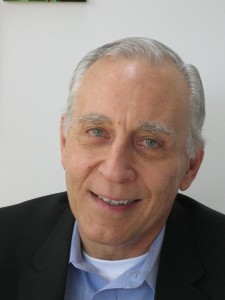 Who says primaries are not important? Tell that to the candidates and incumbents vying for New York’s US House seats. The 2010 census reduced the number of US House seats for New York from 29 to 27. The redistricting of these newly-redrawn districts means a new shuffling of the cards for the candidates and incumbents vying for these reduced number of US House races. Who says primaries are not important? Tell that to the candidates and incumbents vying for New York’s US House seats. The 2010 census reduced the number of US House seats for New York from 29 to 27. The redistricting of these newly-redrawn districts means a new shuffling of the cards for the candidates and incumbents vying for these reduced number of US House races.
In the 2010 primary, only 18% of voters turned out for the New York Primary. The turnout this year could be even worse because, in January, a Federal judge moved up the primary from Sept. 11 to June 26. New York voters became accustomed to having a primary after Labor Day. The change in date can only further hurt turnout. So, possibly fewer voters will determine who might be elected to Congress.
Currently three-quarters (21 of the 29) of New York’s U.S. House seats are currently held by Democrats and only one-quarter (8 of the 29) by Republicans. Of the 27 newly-created districts, there are 10 traditionally held Democratic seats (Districts 5, 6, 7, 8, 9, 13, 16, 18, 19, 23) being hotly contested. Many contests have between 3 to 5 candidates seeking a place on the November ballot. The Republicans will only have 5 contests on the primary ballot and they are a lot simpler with only 2 candidates in each contest. Three Republican US House district races are selecting a candidate who will attempt to unseat an incumbent Democrat. Two races are selecting a Republican for a traditionally-held Republican district. They also have three candidates hoping to unseat Democratic incumbent senator Kirsten Gillibrand.
Probably the most interesting contests in the New York Primary is New York’s 13th Congressional District, where Democrat Charles Rangel, who was the incumbent from the pre-redistricted 15th District now has to win the primary in the new 13th District. The old 15th District was basically the Harlem neighborhood. The new 13th District, which is still centered in Harlem, is no longer primarily African-American and has changed dramatically. The District has ballooned to cover all of Upper Manhattan, and extends into the Bronx. The old 15th District was close to 80% African-American, while the new 13th is only about 36% African-American and has a majority-Hispanic voting-age population.
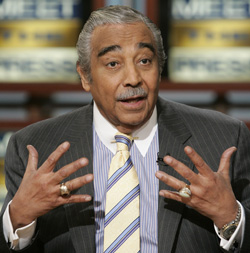 U.S. Representative Rangel has been in the U.S. House since 1971 (i.e., for 41 years) and is age 81. In 1971, he defeated Adam Clayton Powell Jr. by a razor-thin 300-vote margin but has won handily every election since, garnering over 95% of the vote in most elections. He is the third most senior member of the House and Chairman emeritus of the powerful Ways and Means Committee. That seniority has allowed him to deliver millions of dollars to Harlem. But, he now faces four challengers in the upcoming primary election. Whoever wins this primary contest probably will be elected to Congress in this Democratic District. U.S. Representative Rangel has been in the U.S. House since 1971 (i.e., for 41 years) and is age 81. In 1971, he defeated Adam Clayton Powell Jr. by a razor-thin 300-vote margin but has won handily every election since, garnering over 95% of the vote in most elections. He is the third most senior member of the House and Chairman emeritus of the powerful Ways and Means Committee. That seniority has allowed him to deliver millions of dollars to Harlem. But, he now faces four challengers in the upcoming primary election. Whoever wins this primary contest probably will be elected to Congress in this Democratic District.
In the new 13th District, Rangel is facing one of the toughest campaigns of his political life. He faces four very strong candidates.
Probably Rangel’s biggest threat comes from Adriano Espaillat. Espaillat is a Dominican-American and the only elected official among Rangel’s four challengers. He probably will obtain the majority Latino/Hispanic vote in the District. El Diario, the oldest Spanish language newspaper in New York, and is one of the most read publications in the 13th Congressional District, has endorsed and praised Espaillat’s work on behalf of poor and middle-class New Yorkers and said he would be a strong voice on immigration, healthcare, and other critical issues. Also, helping Espaillat is former candidate Vince Morgan. He withdrew from this race and endorsed Espaillat on April 10th.
But, Joyce Johnson also poses a significant challenge. Johnson ran against Rangel and came in third to Rangel and Adam Clayton Powell IV in the 2010 primary. At that time, The New York Times editorial board endorsed her over Rangel. She is a long-time activist, a former local Democratic district leader, and has spent many years in New York City government. She’s smart and is a graduate of Howard University with a degree in microbiology.
Another worthy opponent is Craig Schley. Schley is a highly-motivated 48 year old NYU Dean’s List Scholar and Harlem activist who built his reputation by opposing the 125th Street rezoning in 2008. This is his third time challenging Rangel. His campaign theme is to oppose the status quo. It may be dangerous to under-estimate an African American Bobby Kennedy type candidate.
Read the rest of…
Ron Kahlow: Charlie Rangel, Redistricting, and the New York Closed Primary
By Jeff Smith, on Mon Jun 4, 2012 at 8:30 AM ET  Does John Edwards deserve to go to prison? The jury has decided, and he’s walking. Does John Edwards deserve to go to prison? The jury has decided, and he’s walking.
Whatever we may think of the Edwards trial, one thing is certain: the prosecution was a ridiculous waste of taxpayer money on a non-crime. Who cares if a billionaire wants to give a multimillionaire some money to hide his mistress (who pays taxes on the gift)?
The prosecution of Edwards was never so much about Edwards as it was about George Holding.
Wait — who is George Holding? And why should we care?
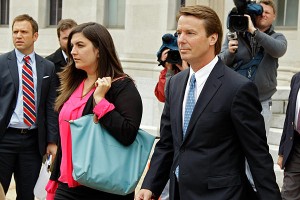 After winning a recent primary, Holding is likely the next congressman in the 13th District of North Carolina. He initiated the prosecution against Edwards while he was a U.S. Attorney. But he didn’t argue the case in court. Instead, after receiving a year’s worth of headlines (and Republican praise) for charging Edwards, Holding resigned from the case to run for Congress. After winning a recent primary, Holding is likely the next congressman in the 13th District of North Carolina. He initiated the prosecution against Edwards while he was a U.S. Attorney. But he didn’t argue the case in court. Instead, after receiving a year’s worth of headlines (and Republican praise) for charging Edwards, Holding resigned from the case to run for Congress.
Maybe Holding understood the weakness of the case, which rested upon Edwards’ failure to report the money billionaire heiress Bunny Mellon and another wealthy donor gave to him to help hide his mistress. The problem is that if Edwards had reported contributions and then used them for personal expenses, he would have been guilty of a crime, since the Federal Election Commission bars spending official campaign funds on personal expenses. Therefore, according to Holding, Edwards was damned if he did, and damned if he didn’t.
Read the rest of…
Jeff Smith: Edwards Trial A Ridiculous Waste of Taxpayer Money
By Jeff Smith, on Thu May 31, 2012 at 1:30 PM ET 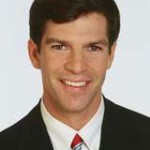 Articles like this just warm my heart – and probably John Edwards’ too. “Super PAC Timing Raises Questions” [Politico] Articles like this just warm my heart – and probably John Edwards’ too. “Super PAC Timing Raises Questions” [Politico]
By Jason Grill, on Wed May 30, 2012 at 10:00 AM ET 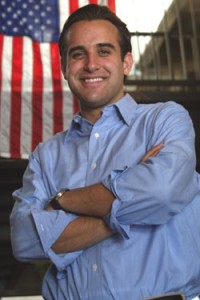 Politics and sports are two things that incite strong emotions in nearly every individual in this country, but they should very rarely converge. Last week the Senate Judiciary Committee announced there would be an upcoming hearing about bounties in professional football and other major sports as a result of recent allegations that the New Orleans Saints employed a system in which players would receive extra cash for hits that hurt high-profile opponents. Politics and sports are two things that incite strong emotions in nearly every individual in this country, but they should very rarely converge. Last week the Senate Judiciary Committee announced there would be an upcoming hearing about bounties in professional football and other major sports as a result of recent allegations that the New Orleans Saints employed a system in which players would receive extra cash for hits that hurt high-profile opponents.
Are they serious? Well, yes they are. Sen. Dick Durbin (D-IL) wants to examine whether a federal law should make bounty systems a crime. This week reports have surfaced that the IRS is now poking around and monitoring the situation about the payments that were made to players. The dominos are beginning to fall and political grandstanding has already begun. I am not a pollster, but if I had to guess I would assume more Americans are concerned with their pocket books and the economy right now than on professional sports bounty programs. Shockingly, I know I am going out on a limb here. Seriously though, Congress should only involve itself in sports-related matters on very rare occasions. One of those is sports gambling.
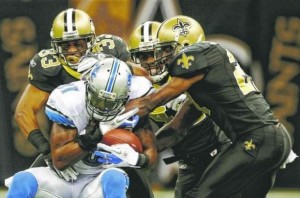 The Final Four [took place] in New Orleans with four historically good programs. More than six million people filled out NCAA tournament brackets on ESPN.com alone. Last month the Super Bowl game garnered the prize as the highest-rated television show in United States history with an estimated 111 million people watching. The Final Four [took place] in New Orleans with four historically good programs. More than six million people filled out NCAA tournament brackets on ESPN.com alone. Last month the Super Bowl game garnered the prize as the highest-rated television show in United States history with an estimated 111 million people watching.
Reports have shown that nearly half of all American adults make some sort of wager on the Super Bowl. The time has come for Congress to open its eyes when it comes to sports gambling.
Read the rest of…
Jason Grill: Come on, Congress — Sports Gambling, Not Bounties
By Jeff Smith, on Wed May 23, 2012 at 8:30 AM ET  I saw Bobby Jindal speak in New Orleans a few years ago and I was very impressed. He was personable and loose – the opposite of how he came off during his big national television debut. He demonstrated obvious policy chops but was also quite smooth during the grip and grin. Given his resume and evident intellect, he eliminates any potential for Palin-esque surprises. I saw Bobby Jindal speak in New Orleans a few years ago and I was very impressed. He was personable and loose – the opposite of how he came off during his big national television debut. He demonstrated obvious policy chops but was also quite smooth during the grip and grin. Given his resume and evident intellect, he eliminates any potential for Palin-esque surprises.
And he brings a ton of Indian money, although that’s probably the last of Romney’s worries.
I don’t, however, think he’s the best choice, for a few reasons.
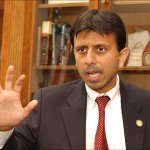 First, he does nothing to reduce the gender gap. Second, he doesn’t help in the Appalachian hollows in swing states like Ohio and Virginia where both Romney and Obama have struggled to connect; in the eyes of those voters he’s just as “exotic” as Obama.
By Jimmy Dahroug, on Mon May 21, 2012 at 8:30 AM ET 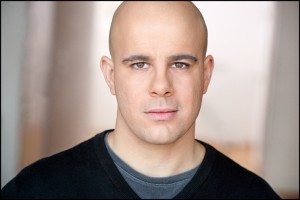 New York will soon become the first state in the nation to require pro bono service with Chief Judge Jonathan Lippman’s recent decision to mandate fifty hours of pro bono work as part of admission to the bar. This is a step in the right direction that can significantly enhance the legal profession. New York will soon become the first state in the nation to require pro bono service with Chief Judge Jonathan Lippman’s recent decision to mandate fifty hours of pro bono work as part of admission to the bar. This is a step in the right direction that can significantly enhance the legal profession.
This new initiative will provide much needed legal assistance for people who cannot afford attorneys. The Legal Aid Society, the nation’s largest provider of free legal services, turns away eight of every nine people seeking help with civil legal matters. Since the recession began in 2008, requests for legal assistance have increased tremendously, especially in the areas of healthcare, work-related problems, and foreclosures. As Judge Lippman pointed out, approximately 10,000 prospective prospective lawyers pass the New York Bar Exam each year. This will result in 500,000 hours of pro bono legal service.
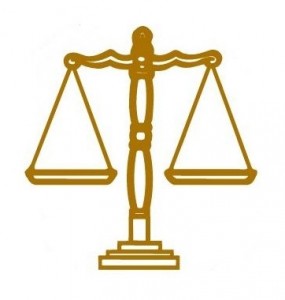 The pro bono requirement will also benefit the attorney and all future clients because it will provide much needed practical experience in legal education. Professionals ranging from surgeons to construction workers receive significant practical training, but as Stanford Law School Dean Larry Kramer explained, “Law is the only profession that gives people licenses to perform services for others that doesn’t require serious, supervised clinical education.” Indeed, top law schools including Stanford have come to recognize the need for experiential training to better prepare attorneys beyond the theory of the classroom. A pro bono requirement helps fill this critical need for practical training. The pro bono requirement will also benefit the attorney and all future clients because it will provide much needed practical experience in legal education. Professionals ranging from surgeons to construction workers receive significant practical training, but as Stanford Law School Dean Larry Kramer explained, “Law is the only profession that gives people licenses to perform services for others that doesn’t require serious, supervised clinical education.” Indeed, top law schools including Stanford have come to recognize the need for experiential training to better prepare attorneys beyond the theory of the classroom. A pro bono requirement helps fill this critical need for practical training.
Read the rest of…
Jimmy Dahroug: NY State’s Pro Bono Requirement is Step in Right Direction
By RP Nation, on Tue May 15, 2012 at 4:45 PM ET Opines Rabbi Jonathan Miller, Birmingham, AL:
I agree with my namesake, Jonathan, and spoke from that way from my pulpit in Alabama. In my experience, people change, and some people change radically and become their better selves. This was a shameful incident. But we do not elect 17 year olds to the office of President, thank God.
Further, I felt badly that Romney had to play dumb, that he couldn’t fess up or tell the world who he changed because of the gotcha political environment. The muted reaction to this event from the candidate and his minions was a result of trying to finesse the news cycles.
Says Linda Curry, Harrods Creek, KY:
I think he should definitely be held accountable. Romney was eighteen (18) years old. Legally he was an adult. Yes, it matters what he did fifty (50) years ago. He wants us to elect him President of the United States. From what I am hearing of his comments he will certainly “bully” the poor and helpless in favor of the ultra rich. He even tried to laugh the matter off as not remembering it. If he were honest with the American people he would not try to act like it didn’t happen.
Read the rest of…
The RPs Debate Romney Bullying: The RP Nation Weighs In
By Jordan Stivers, on Tue May 15, 2012 at 4:00 PM ET  [Click here to follow the entire RP Debate] [Click here to follow the entire RP Debate]
I do agree with many of you that this apparently isolated incident from many years ago should not by itself raise concerns about Mitt Romney’s ability to be a good President.
For me, there are several other legitimate reasons to believe that he is not the right person to lead this country, but this isn’t one of them.
I do, however, think that this was a missed opportunity for Mitt Romney to reveal his humanity, and his ability to admit mistakes and learn from them.
He should have acknowledged the incident, and then shifted the focus by talking about how he realized that he was wrong, and reiterate his respect for all people, etc.
Instead, in typical Romney fashion, he acted like he had no recollection of the event (which isn’t very believable.) He ended up acting flustered, like he does when he is asked an uncomfortable question about his record.
Whether he is or is not an honest and decent person I am sure I will never really know. As voters, all we have to go on is what we observe as the candidates undergo the often brutal scrutiny that comes with running for President. We need to know if the leader of the free world can be honest and reflective, and if they can handle criticism, even if it is unfair or irrelevant.
In summary, it is not the bullying as a teenager that concerns me, it is the response as an adult who is running for the highest office in the land that does.
By Steven Schulman, on Tue May 15, 2012 at 3:30 PM ET  [Click here to follow the entire RP Debate] [Click here to follow the entire RP Debate]
How about this thought experiment:
What if the victim had been a girl, and he had ripped off her bra because she dressed like a beatnik? No groping, nothing sexual, just mean.
If that is different, why?
Also, the analogies to using alcohol and marijuana ring quite hollow. Those are personal experiments, not harassment of others.
This conduct is surely not disqualifying by any stretch – I don’t think anyone is saying that it is. But the contrary position — that it deserves no attention at all — is not realistic. This is one of the things that goes into the basket of judging character, and Romney’s recent behavior, his marriage, etc., that voters can and should look at to get a picture of the man who wants to be our president.
By Jeff Smith, on Tue May 15, 2012 at 3:00 PM ET  [Click here to follow the entire RP Debate] [Click here to follow the entire RP Debate]
Artur writes that “if one’s perspective is that Mitt Romney’s opposition to gay marriage and his parting of ways with a staffer whose public position was at odds with his own both amount to homophobia or bigotry,” then there is no room left for civil debate.
A bit of sophistry there. I never said that Romney’s position or his pushing out of Grenell amounted to homophobia and bigotry. I said that it amounted to a weakness of character.
While out, loud, and proud, Grenell worked for eight years for George W. Bush, serving as spokesman to Ambassadors Bolton and Negroponte, as well as John Danforth and Zalmay Khalilzad. Bush, of course, also strongly opposed gay marriage and pushed a constitutional amendment to ban it. The point is that Grenell was at odds with Bush too but Bush understood that not every member of your administration will agree with every single one of the administration’s positions; it is, however, critical that employees agree with those positions in the realm in which they work.
But as Jonah Goldberg from Artur’s own NRO writes, Romney should understand that if you’re going to oppose gay marriage, you will have zero chance of convincing anyone your position isn’t driven by anti-gay animus if you’re also opposed to gays working in policy areas that have nothing to do with gay marriage.
|
The Recovering Politician Bookstore
|
 Who says primaries are not important? Tell that to the candidates and incumbents vying for New York’s US House seats. The 2010 census reduced the number of US House seats for New York from 29 to 27. The redistricting of these newly-redrawn districts means a new shuffling of the cards for the candidates and incumbents vying for these reduced number of US House races.
Who says primaries are not important? Tell that to the candidates and incumbents vying for New York’s US House seats. The 2010 census reduced the number of US House seats for New York from 29 to 27. The redistricting of these newly-redrawn districts means a new shuffling of the cards for the candidates and incumbents vying for these reduced number of US House races. U.S. Representative Rangel has been in the U.S. House since 1971 (i.e., for 41 years) and is age 81. In 1971, he defeated Adam Clayton Powell Jr. by a razor-thin 300-vote margin but has won handily every election since, garnering over 95% of the vote in most elections. He is the third most senior member of the House and Chairman emeritus of the powerful Ways and Means Committee. That seniority has allowed him to deliver millions of dollars to Harlem. But, he now faces four challengers in the upcoming primary election. Whoever wins this primary contest probably will be elected to Congress in this Democratic District.
U.S. Representative Rangel has been in the U.S. House since 1971 (i.e., for 41 years) and is age 81. In 1971, he defeated Adam Clayton Powell Jr. by a razor-thin 300-vote margin but has won handily every election since, garnering over 95% of the vote in most elections. He is the third most senior member of the House and Chairman emeritus of the powerful Ways and Means Committee. That seniority has allowed him to deliver millions of dollars to Harlem. But, he now faces four challengers in the upcoming primary election. Whoever wins this primary contest probably will be elected to Congress in this Democratic District.

















